In May 2023, Coal Action Network wrote to the Climate Change, Energy, and Infrastructure Committee (CCEIC) of the Welsh Senedd, informing the Committee of the ongoing illegal coal mining at Ffos-y-fran in Merthyr Tydfil, and the Council and Welsh Government’s refusal to use their enforcement powers to prevent the daily extraction of over 1,000 tonnes of coal. After being informed of this context, the CCEIC committed to a short committee inquiry on Ffos-y-fran and the broader failure of restoration of former opencast coal mine sites, with oral evidence sessions in April and May 2024, in which Coal Action Network participated. In August 2024, the CCEIC published its report on the handling of Ffos-y-fran and restoration of opencast coal mining sites across South Wales, citing ‘missed opportunities’ and referring to Ffos-y-fran as “symbol of the system's failures”. Both the Welsh Government and Merthyr Tydfil County Borough Council (MTCBC) responded in September 2024 to the 26 recommendations contained in the CCEIC’s report. A selection of their responses are summarised or quoted below with our analysis following each. This is the brief version, check out our full analysis report with accompanying pictures.
The Welsh Government should commission an independent review to assess the extent of, the funding needed to restore opencast sites to an acceptable level. The independent, review should consider what constitutes an “acceptable level” in consultation with local, authorities and communities.
Welsh Government isn’t liable for funding a programme dealing with open cast mining and land reclamation. Welsh Government has had statutory powers over ‘derelict land’ since April 2006, to protect public safety, create development land and enhance the environmental and social well-being of Wales. In recent years funding for such activity “has been restricted”. The Welsh Government is therefore concerned that assessing the costs to restore open cast sites may create an expectation that Welsh Government will then fund that restoration.
The operator and landowner is responsible for restoration and aftercare of opencast sites. They must also ensure that sufficient finance is set aside to enable them to meet restoration and aftercare obligations.
The Welsh Government repeat this through its response to the CCEIC’s recommendations, yet not once explain who is responsible when the operator and landowner fail to, or claim not to have, set aside sufficient finance to restore the site – which has happened at around 7 sites within the past 10 years in South Wales alone.
The Welsh Government should require local authorities to ensure all Planning Officers’ reports are available online alongside associated planning documents, including revised, restoration plans, where relevant.
We agree that transparency in planning decision making must be achieved, however, insisting on specific web publishing requirements at this time is premature.
The thrust of recommendation 9 is to ensure Planning Officer’s reports are made public, as Planning Officers’ reports summarise in plain English numerous technical planning documents. Public access to this key report would greatly improve transparency. The Welsh Government should urge Councils to make Planning Officers’ reports publicly accessible, where possible.
The Welsh Government should reconsider the proposal from the 2014 report to establish a virtual “Centre of Excellence” for restoration planning, particularly in light of potential coal-tip reclamation proposals, and lead discussions with local government on how to implement this.
Given our existing presumption against coal extraction, we expect “very few schemes being brought forward”. Our primary focus is to ensure that disused tips are safe and to deliver a modernised, fit-for-purpose regulatory regime. After the disused mine and quarry tips Bill is passed The Welsh Government will take “a more detailed strategic approach to mining and industrial legacy in Wales – this will need to include reclamation of disused tips and management of open cast mining.”
Contrary to the Welsh Government’s expectation of “very few schemes”, right now there are two schemes proposing coal extraction in South Wales, and a further application to downgrade the remediation scheme for Ffos-y-fran is expected before the end of this year. All these schemes would benefit from the kind of oversight the CCEIC are proposing with its recommendation for a Centre of Excellence, so action by the Welsh Government is needed now rather than years into the future.
The Welsh Government must engage with the UK Government with the aim of removing the Coal Authority’s statutory duty to maintain and develop an economically viable coal mining industry.
Whereas we would wish for the Coal Authority to remove its statutory duty to maintain and develop an economically viable coal mining industry, this duty has no practical effect in Wales… The Welsh Government is confident that it has in place the necessary policy and processes to ensure the climate emergency and nature emergency are fully reflected in any decision making.
Contrary to the Welsh Government’s confidence, its policies were deemed compatible with an opencast coal mine extension just last year in 2023. Additionally, the Welsh Government Minister for Climate Change Julie James wrote to the UK Government in 2021 stating that: “…we consider the statutory duty of the Coal Authority to develop and maintain a viable coal extraction industry must be removed if we are to achieve our policy ambitions…”, which is at odds with the Welsh Government’s response to the CCEIC’s recommendation, and there hasn’t been relevant Welsh policy evolution in the meantime to explain this new position.
The Welsh Government should review and update the Minerals Technical Advice Note 2 (MTAN2) to ensure it is fit for purpose, particularly in the context of new developments and coal tip remediation.
Minerals Technical Advice Note 2 Coal (MTAN2) contains comprehensive planning guidance which is robust about restoration and aftercare schemes for coal extraction. Along with all other planning policy, MTAN2 is kept under continual review to ensure it is kept up to date, fit for purpose and relevant.
The Welsh Government released MTAN2 in 2009, so it fails to reflect the many relevant policy developments over the past 15 years. The Welsh Government’s refusal to review MTAN2 is also bewildering given the policy has ostensibly failed to secure decent restoration of numerous coal mining sites across South Wales since its implementation. MTAN2 needs to be reviewed in line with the CCEIC’s recommendation.
The Welsh Government should incorporate provisions for the restoration of former opencast sites within the forthcoming Disused Tips (Mines and Quarries) Bill.
“In his Legislative Statement on 9 July 2024, the then First Minister made clear that inclusion of provisions relating to restoration of former opencast sites within the forthcoming Disused Tips (Mines and Quarries) Bill (the Bill) is not feasible at this time.” The Welsh Government cites further delay due to expansion of scope, and affordability as the key reasons for its position.
Coal tips are created by the act of deep coal mining. Overburden mounds are created by the act of opencast coal mining – there is little difference between the two in their risk or cause. The other hazards posed by abandoned and under-restored opencast coal mining sites should also be dealt with in the same legislation, given their shared cause, similar urgency, and methods of resolution (monitoring, landscaping, and earth works).
The Welsh Government must mandate public consultation for all stages of the restoration process, including when revised restoration plans are brought forward.
Public participation is very important at all stages of the planning process and is to be encouraged. The wide range of development types and scales mean planning legislation can only set a minimum standard of consultation…however we expect planning authorities to consult where the public is materially affected by the submitted details.
A restoration plan represents a promise made to nearby communities before they endure what is often years of disruption, noise, and dust during subsequent coal mining. Accordingly, those communities should be meaningfully consulted on proposed changes to that promise, with their feedback given significant weight in shaping associated planning decisions and conditions. We ask if the Welsh Government will issue guidance to Local Planning Authorities to this effect, to act on its acceptance in principle of the CCEIC’s recommendation.
The Welsh Government should advise local authorities to designate a specific officer as a point of contact for the local community, providing a direct communication channel between residents and local authorities on matters relating to sites or similar developments.
MTAN2 recommends the mining company appoints a site liaison officer. Additionally, Local Planning Authorities have a Planning Case Officer before an application is approved, and the enforcement team for after an application is approved.
Within Local Planning Authorities, Case Officers often say they are too busy with their main work to engage more with public enquiries and concerns. Given the potential impact of planning applications on nearby communities, there’s clearly a need to have a dedicated contact point for community input and involvement. We ask if the Welsh Government will issue guidance to Local Planning Authorities to this effect, to act on its acceptance in principle of the CCEIC’s recommendation.
The Welsh Government should advise local authorities to create online portals where residents can access up-to-date information on all stages of the restoration process.
Insisting on specific web publishing requirements at this time is premature. The Welsh Government is working with the Centre for Digital Public Services (CDPS) in exploring how digital solutions can improve the planning system in Wales. It is anticipated that the communication of decisions will form an integral part of that work. This will bring together the variability currently seen across authorities in a managed cost-effective way.
The Welsh Government should expedite online public access to planning documents, and have facilitating public engagement as an explicit aim of this work. The poor design of some planning portals currently create barriers to community members accessing critical information about developments that will potentially impact them. We ask the Welsh Government to centre a public consultation in its design of digitalised planning systems.
The Welsh Government should encourage the use of citizens' assemblies as forums for discussing the future of restoration sites, particularly where restoration failed to meet the original planning permission and compromises need to be made.
National planning guidance already recognises that well established liaison committees help to provide a better understanding of the impacts to be expected from mineral extraction. Many quarries and coal sites have established liaison committees which act as a forum for regular discussion and explanation of current problems. Where regular complaints are received or there is concern about local impacts the local planning authority should request that the operator cooperate in establishing regular meetings of a nominated group.
We agree with the National Planning guidance’s promotion of community liaison committees, but find execution is inconsistent, and in some cases, absent altogether – even where there are serious breaches of planning control and trust. This has left some participating residents we’ve spoken with feeling ignored and apathetic. We ask if the Welsh Government will reconsider the sentiment of the CCEIC’s recommendation, by strengthening the National Planning guidance on community liaison committees.
The Welsh Government must explore stronger enforcement mechanisms to address breaches of planning controls without delay, such as the mining activities that continued at Ffos-y-Fran after the licence expired.
The Town and Country Planning Act 1990 provides a range of effective enforcement options depending on the circumstances. Enforcement is focused on addressing the unacceptable impacts of unauthorised development rather than punishing the developer. Given the complex nature of planning impacts on both the environment and people it is sometimes acceptable to allow unauthorised activities to continue while consideration is given to the best course of action. That is what Merthyr Tydfil County Borough Council concluded at Ffos-y-Fran. However, where unacceptable harm is happening, the law does currently provide authorities with powers to stop activities immediately, either through a stop notice or Court injunction.
Ffos-y-fran highlights that enforcement options are only robust to the extent that they can be implemented. For 15 months, Merthyr Tydfil County Borough Council believed the consequences of using enforcement options available to it were worse than allowing severe, long-term, harmful, and persistent breaches of planning control. This suggests that current enforcement options are not fit for purpose. Therefore we ask if the Welsh Government will reconsider the CCEIC’s recommendation and review existing planning enforcement options for their practical effectiveness in controlling largescale developments?
The Welsh Government should consider the broader implications of the failures at Ffos-y-Fran and implement systemic changes to prevent similar issues in future, including in relation to coal-tip reclamation sites.
Welsh Government coal extraction planning policy is clear that development proposals will only be approved in wholly exceptional circumstances. There will therefore be very few schemes being brought forward. At the present time, our primary focus is to ensure that disused tips are safe and to deliver a modernised, fit-for-purpose regulatory regime.
In the face of the Welsh Government’s expectation of ‘very few schemes’, there are currently two schemes in pre-application consultation (Bedwas Tips and an extension to Glan Lash) proposing coal extraction in South Wales, with remediation dimensions. Ffos-y-fran is a current example of the abject failure of planning control to secure the agreed restoration, even after allowing 15 months of illegal coal mining with an associated 1.6 million tonnes of CO2. Ffos-y-fran is not a lone example, but rather part of a history of planning control failing to deliver the agreed standard of restoration at East Pit, Selar, Margam Parc Slip, and Nant Helen within the past decade alone in South Wales. If the Welsh Government refuses to learn lessons from this egregious breach of its own national policy on coal mining, it calls into question whether the Welsh Government gives the CCEIC’s findings the gravitas they clearly merit. Such a refusal also risks the repeat of mistakes that led to avoidable harm to surrounding communities, the local environment and restoration liability, our shared climate, planning control, trust in the Local Planning Authority, and Wales’s reputation as a climate leader. We ask the Welsh Government to reconsider the relevance and urgency of reviewing the broader implications of the failures at Ffos-y-Fran and implement systemic changes to prevent similar issues in future, in-line with the CCEIC’s recommendation.
In the event that the water cannot be drained from the, voids at the site, Merthyr Tydfil County Borough Council must ensure that any, water bodies resulting from the restoration at Ffos-y-Fran are safe and provide, benefit to the local community.
Accepting this recommendation with no further comment will not reassure local communities, particularly given the lack of consultation to date, and unsafe conditions documented around the flooded voids at similar sites of Margam/Parc Slip and East Pit former opencast coal mines.
Merthyr Tydfil County Borough Council must ensure, that the revised restoration plan reflects, as a minimum, the objectives of the, original restoration plan, including: safe public access across the East Merthyr, historic landscape with a new network of trails and footpaths; sustainable, wildlife habitats and biodiverse environmental sites; protection and restoration, of surviving heritage features; and the return of most of the site for traditional, commoners’ use.
Any revised scheme would inevitably differ in that overburden mounds 2 and 3 are, likely to be retained and a body of water will be incorporated into the scheme. The developer has also, indicated that they would wish to retain the motorcross facility.
Allowing the void to flood and letting the site operator leave its colossal coal tips (overburden mounds) above ground amounts to an abandonment of the original restoration objectives promised to local communities. As with MTCBC’s refusal to issue a Stop Notice to prevent the daily illegal mining of over 1,000 tonnes of coal, allowing a noisy motocross to be atop one of those coal tips that operated during this period of unregulated illegal activity, would be seen as another betrayal of local communities to the benefit of the mining company.
Merthyr Tydfil County Borough Council should fully, involve local residents in the consideration of revised restoration plans for the, Ffos-y-Fran site.
We are disappointed at this glib and non-committal comment and invite MTCBC to properly respond to the CCEIC’s recommendation 24.
Merthyr Tydfil County Borough Council should publish, the application for the revised restoration plan at Ffos-y-Fran and the planning, officer’s associated reports
Merthyr Tydfil County Borough Council:
Response: Noted
Our analysis:
We are disappointed at this glib and non-committal comment and invite MTCBC to properly respond to the CCEIC’s recommendation 25.
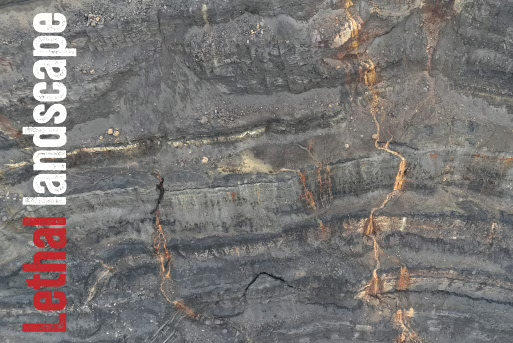
16 years of opencast coal mining in Ffos-y-fran has generated colossal overburden mounds, also known as slag heaps or coal tips. There are three coal tips, with the third being the largest, and cumulatively accounting for 37 million cubic metres of colliery spoil, rocks, and soil…
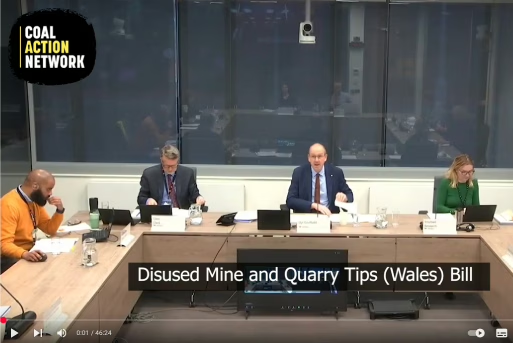
We were invited for the second time to give oral evidence to the Climate Change, Environment, and Infrastructure Committee of the Welsh Parliament (Senedd) on 05th February 2025. We shared the panel with Haf, Director of FOE Cymru, to provide our opinion on the weaknesses, strengths…
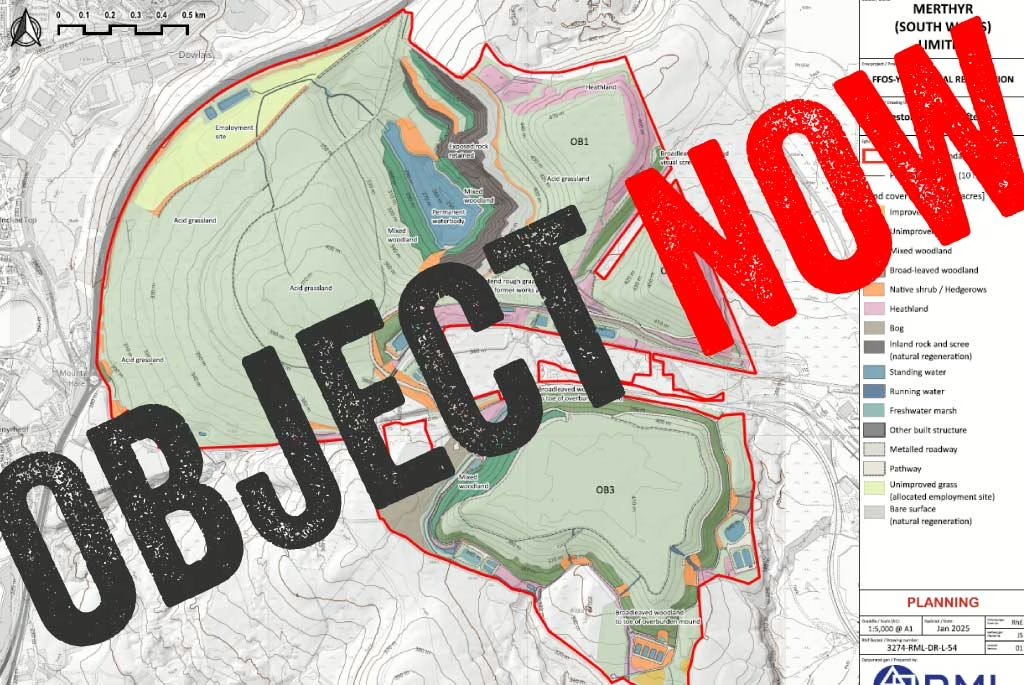
Merthyr (South Wales) Ltd mined for over a year illegally after planning permission for the Ffos-y-fran opencast coal mine ended in September 2022. During that year, it made record-breaking profits due to sanctions on Russia and other factors driving up the price of coal. But rather than using some of the profits from that ill-gotten coal…

MSW claims “It was established that there are insufficient funds available to achieve the 2015 restoration strategy and therefore an alternative scheme is required.” (EIA Scoping Report, July 2024)… To our knowledge, there has been no evidence submitted by MSW that it cannot fund the full restoration it is contracted to undertake…
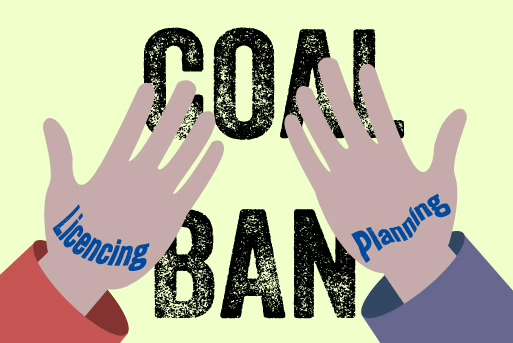
The UK Government launched a consultation on a limited review of the National Planning Policy Framework (NPPF) for 8 weeks from 30 July to 24 September 2024. The NPPF is an influential document that shapes planning decisions and priorities across England. It is periodically updated by the Government, following a public consultation…
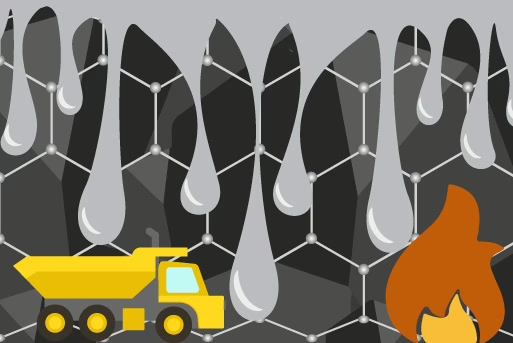
Bryn Bach Coal Ltd attempts to present the anthracite coal it wishes to extract from an expansion of Glan Lash as a unique and scarce commodity that is needed for water filtration, bricks, and graphite, and would therefore be too valuable to burn. Yet, visiting Energybuild Ltd’s…
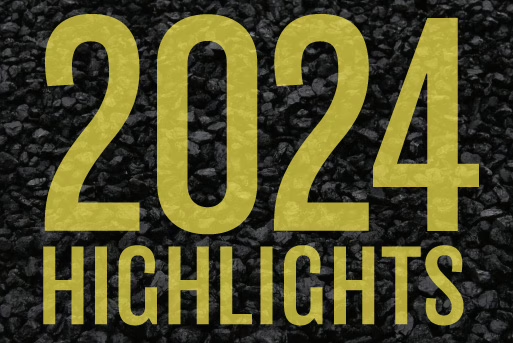
Over the past year, we’ve secured some massive victories. By taking part in our digital actions, supporters sent over 26,000 messages to the UK Government, MPs, Welsh Senedd members, Councillors, and companies to help consign coal to the history books in the UK…
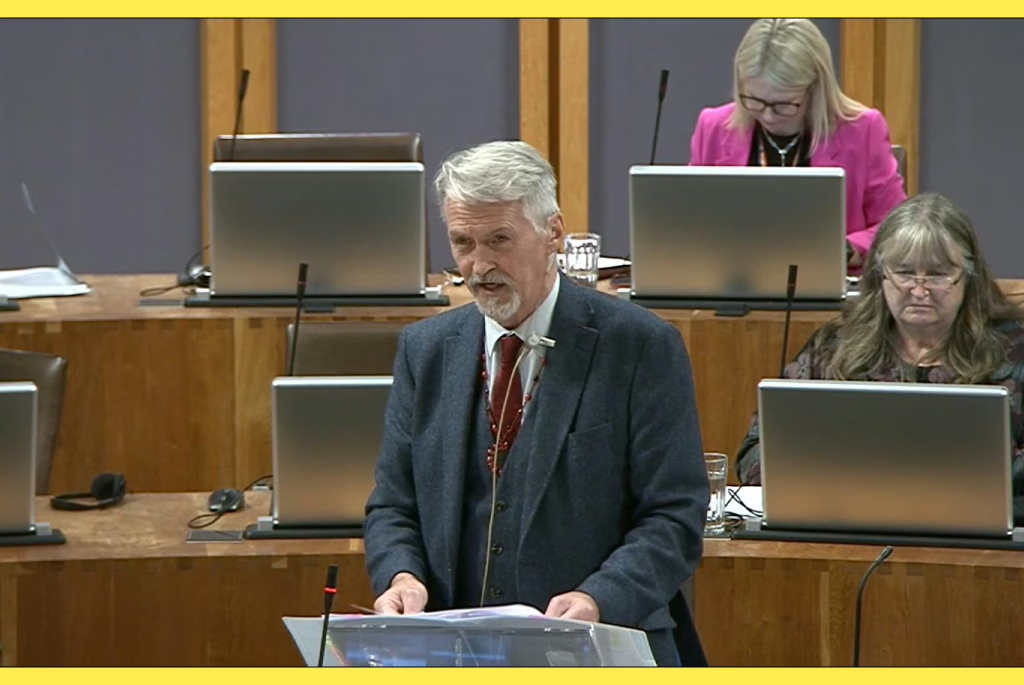
The Disused Mine and Quarry Tips (Wales) Bill (‘the Bill’) was prompted by a series of coal tip landslides that occurred in Wales following storms’ Ciara and Dennis in 2020, including a major landslide of a disused coal tip in Tylorstown…

As B Labs doesn’t seem bothered was the public says, we asked supporters to contact other B Corps – who are effectively B Labs customers. Almost 20,000 emails were sent to over 60 B Corp status companies, asking them to take a stand with us…